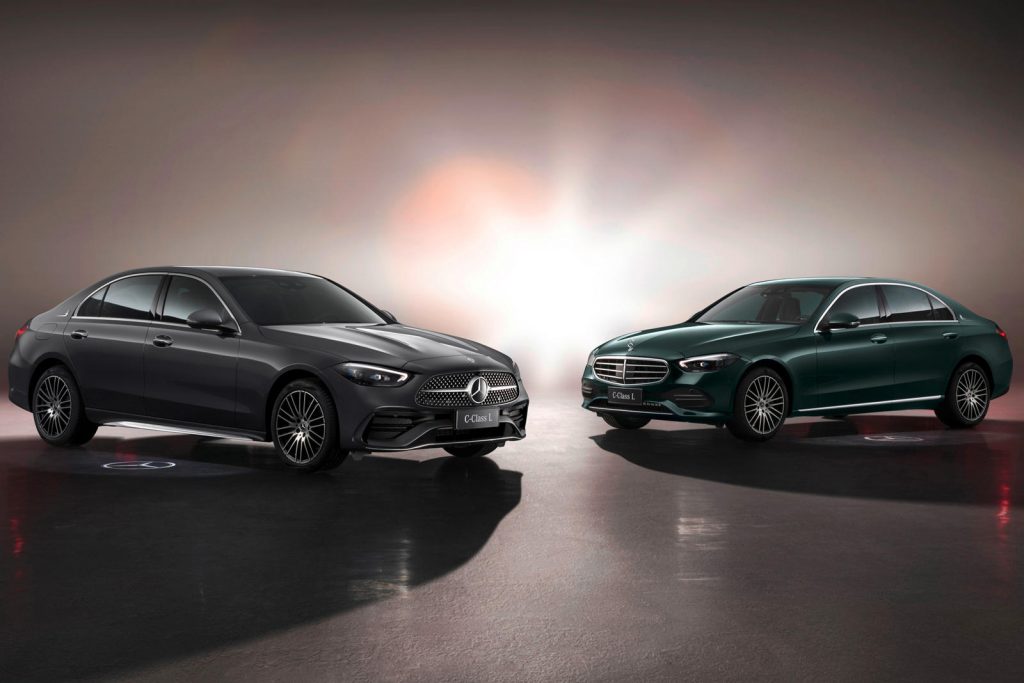Mercedes-Benz Addresses Claims That It’s Prioritizing Cheaper Cars To Increase Sales
Giancarlo Perlas February 18, 2024Mercedes-Benz just responded to reports suggesting its shift toward more affordable gasoline cars just to drive more sales. The luxury automaker stated that its long-term vision involves a transition to electric vehicles (EVs), dependent on market conditions. However, it also plans to balance this strategy by leveraging its high-end vehicle portfolio while introducing new products, including electric and hybrid models, to cater to both short-term growth opportunities and local market demands.

Official Response
“Our long-term strategy is to go all electric in the future where market conditions allow,” a Mercedes-Benz spokesperson told Motor1. “In the short/near term, we will leverage the strength of our top-end vehicle portfolio (TEV); and balance the short term with tactical flexibility on ICE, EV, PHEV to maximize growth opportunity and local market demands.”
“We are poised to accelerate growth in core segments this year by virtue of new products like E-Class, stronger supplies of GLC (vs. 2023 shortages) but still have plenty of high-end launches with S63e, G-Class, G-Class Electric and AMG GT,” the representative added. “In 2024 our lineup will benefit from 25 new products, including all new models in core segments. This is in addition to our long-term goals and emphasis on top-end segments.”
Mercedes-Benz “Economics of Desire”
The company’s 2022 “Economics of Desire” strategy highlighted a focus on the more lucrative high-end segment, dedicating over three-quarters of its research and development funds to top-tier products like the S-Class, SL, G-Class, and the prestigious AMG and Maybach brands. Nonetheless, there have been reports of the brand potentially adjusting its direction in the United States.
According to the original source of the story, Automotive News, discussions in a dealer meeting in Las Vegas hinted at a 2024 strategy leaning toward boosting sales through lower-priced gasoline and hybrid vehicles, with a particular focus on the C-Class and E-Class models alongside their SUV counterparts, the GLC and GLE.
Mercedes reportedly plans to launch 25 new products, including fresh models in its core segments. This expansion includes the anticipated replacement of the CLA, which could potentially hit the US market by 2025.
Despite the fully electric concept showcased last year, the new compact car family will maintain flexibility with architecture that accommodates combustion engines, illustrating the three-pointed star marque’s tactical flexibility between ICE, EV, and PHEV models to meet diverse market needs. This new lineup is expected to feature two crossovers and a shooting brake, teasing the future for the GLA, GLB, and CLA Shooting Brake, although it’s uncertain which of these models will be available in the US.
The automaker is also exploring the development of the “Little G,” set to debut on the new Mercedes Modular Architecture (MMA) platform by 2026. This platform is designed with an “EV-first but not EV-exclusive” approach, indicating Mercedes-Benz’s nuanced strategy of embracing electric mobility while not completely phasing out internal combustion engine (ICE) vehicles.
The source further adds that Mercedes’ goal for the US market is clear: surpassing the sales figures of 282,229 vehicles (excluding vans) achieved in 2023, aiming for an ambitious target of over 300,000 cars in 2024. This increase in volume is a direct response to the modest dip in sales the company experienced the previous year, signaling a determined effort to bolster its position in the competitive automotive landscape.
A Move Contradicting Its Ethos
This strategic pivot comes in light of the recent global semiconductor shortage that influenced Mercedes-Benz’s decision to prioritize the production of higher-margin vehicles. As the EV market experiences a slowdown and interest rates remain high, the brand’s move towards more volume-oriented products like the C-Class and E-Class somehow makes more sense.
Yet, this approach seemingly contradicts the upmarket ambitions of Mercedes-Benz, albeit the company continues to partially safeguard its luxury status by planning to streamline its compact car lineup. This inclination towards simplification could see the discontinuation of less profitable models such as the A-Class hatchback, A-Class sedan, and B-Class minivan, underlining the brand’s commitment to focusing on its more lucrative segments.




